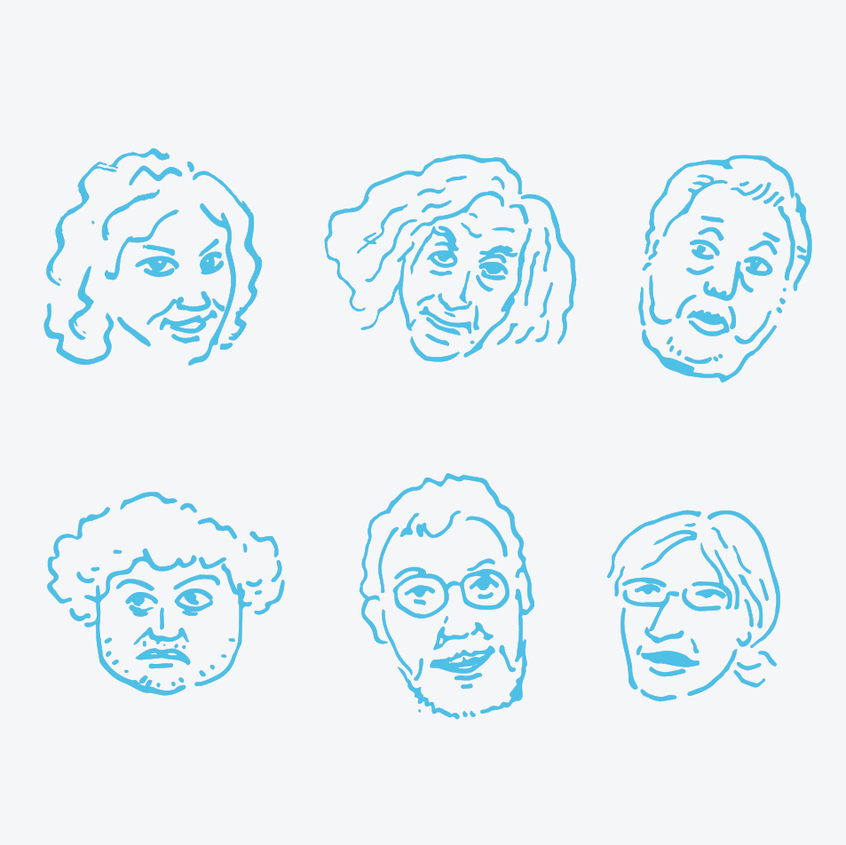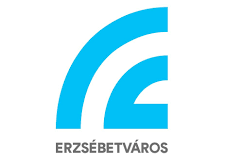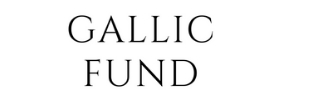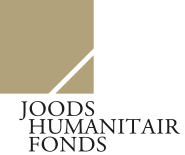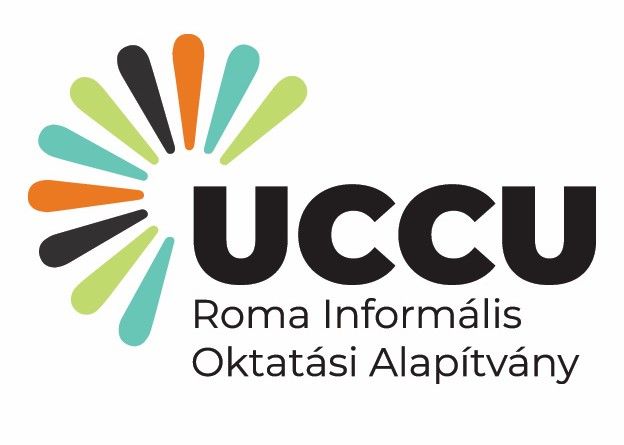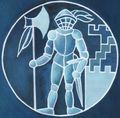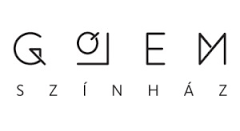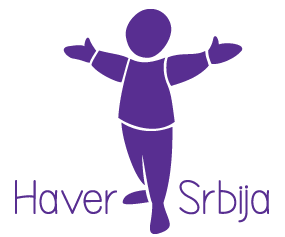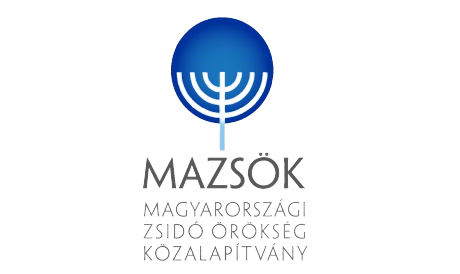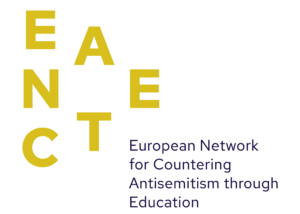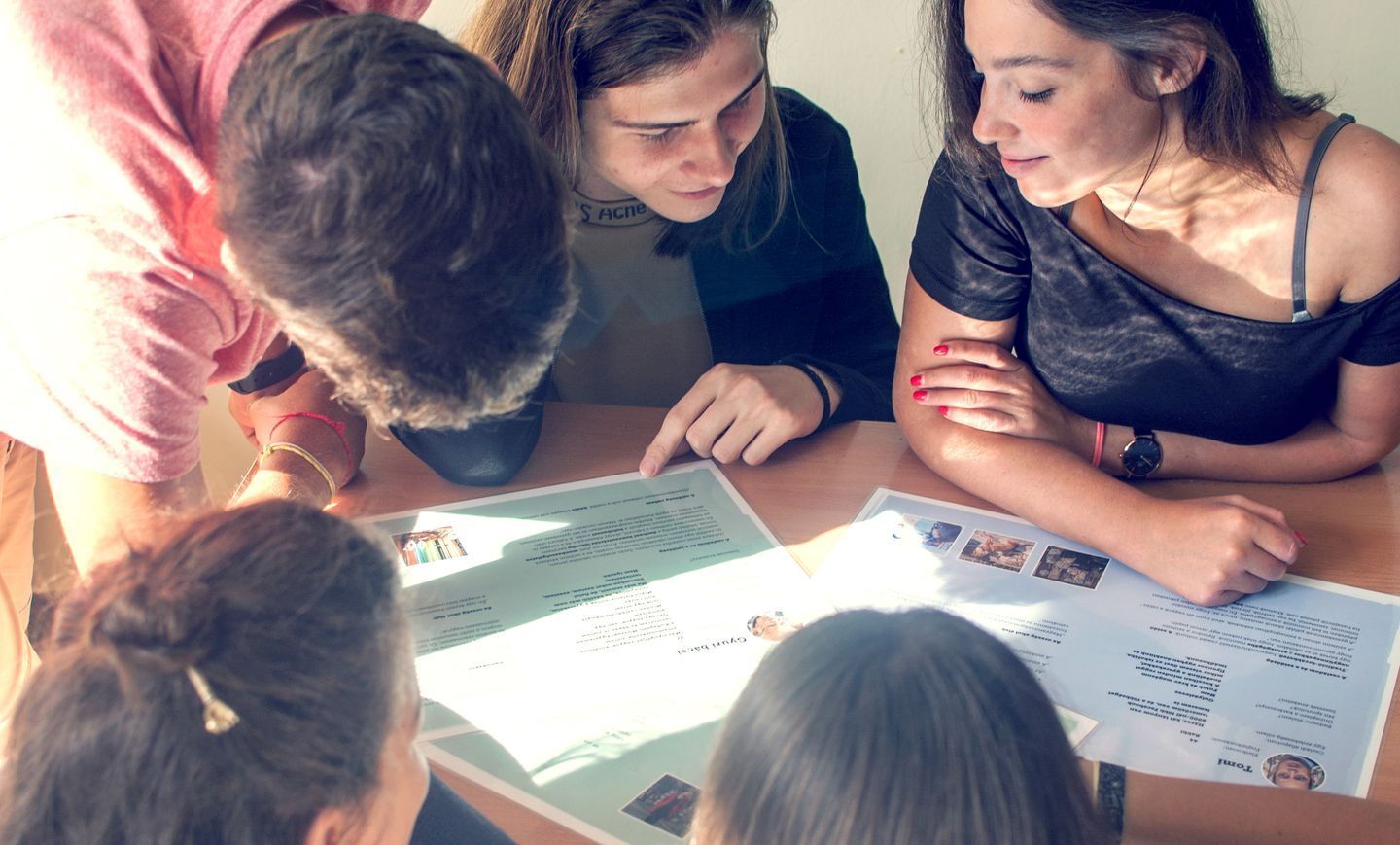
Education
Identities
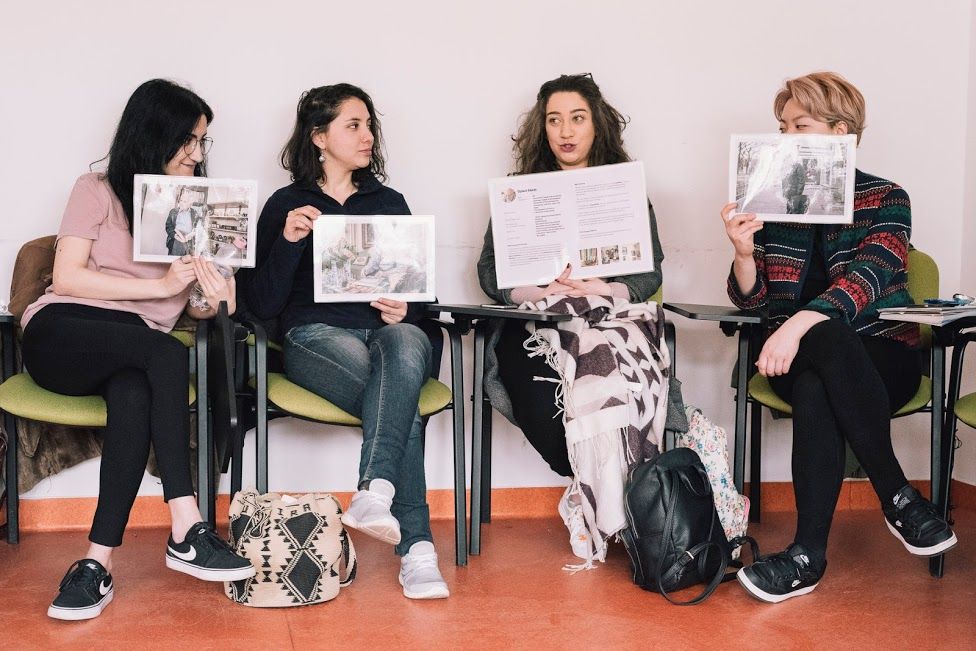
Jewish Quarter Walking Tour
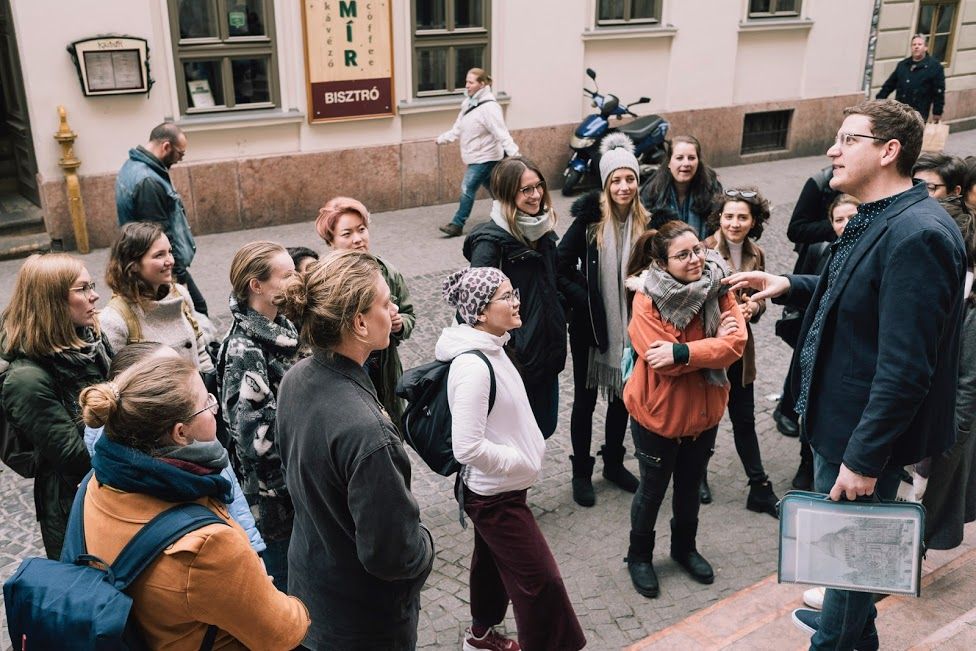
Recipes for Humanity
In our Recipes for Humanity session, students can follow the life stories of three Hungarian Holocaust survivor women, Hédi, Mira, and Vera. Through interactive activities, students connect with the women’s everyday lives, learn how discrimination and dehumanization developed in Hungary, and see how individual experiences relate to historical events. The session highlights the importance of recognizing bystander behaviour, counters antisemitism through storytelling, and encourages students to reflect on what people need—both practically and emotionally—to preserve their humanity in difficult circumstances.

Small Buddy — For younger students
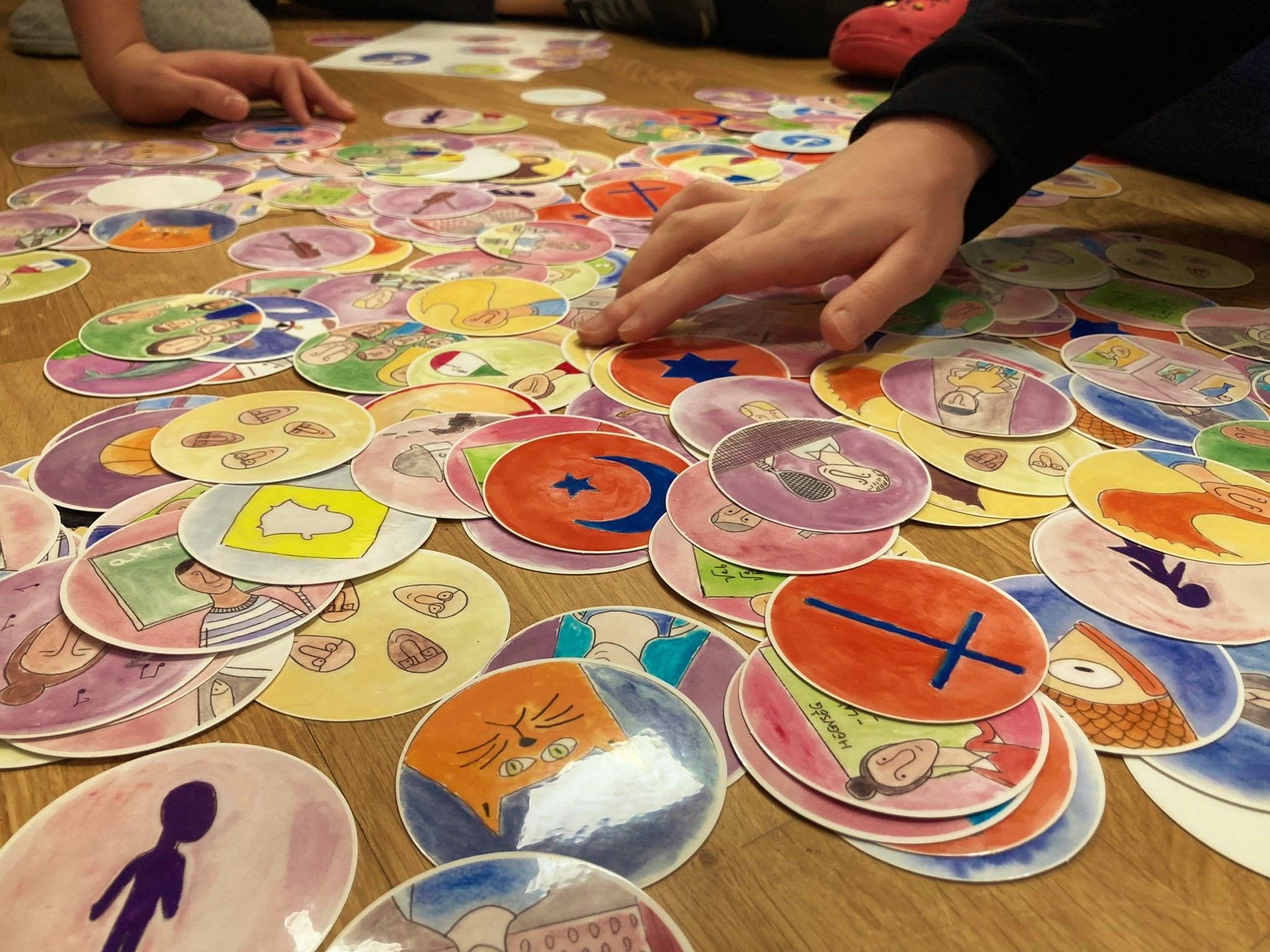
Dilemma Café
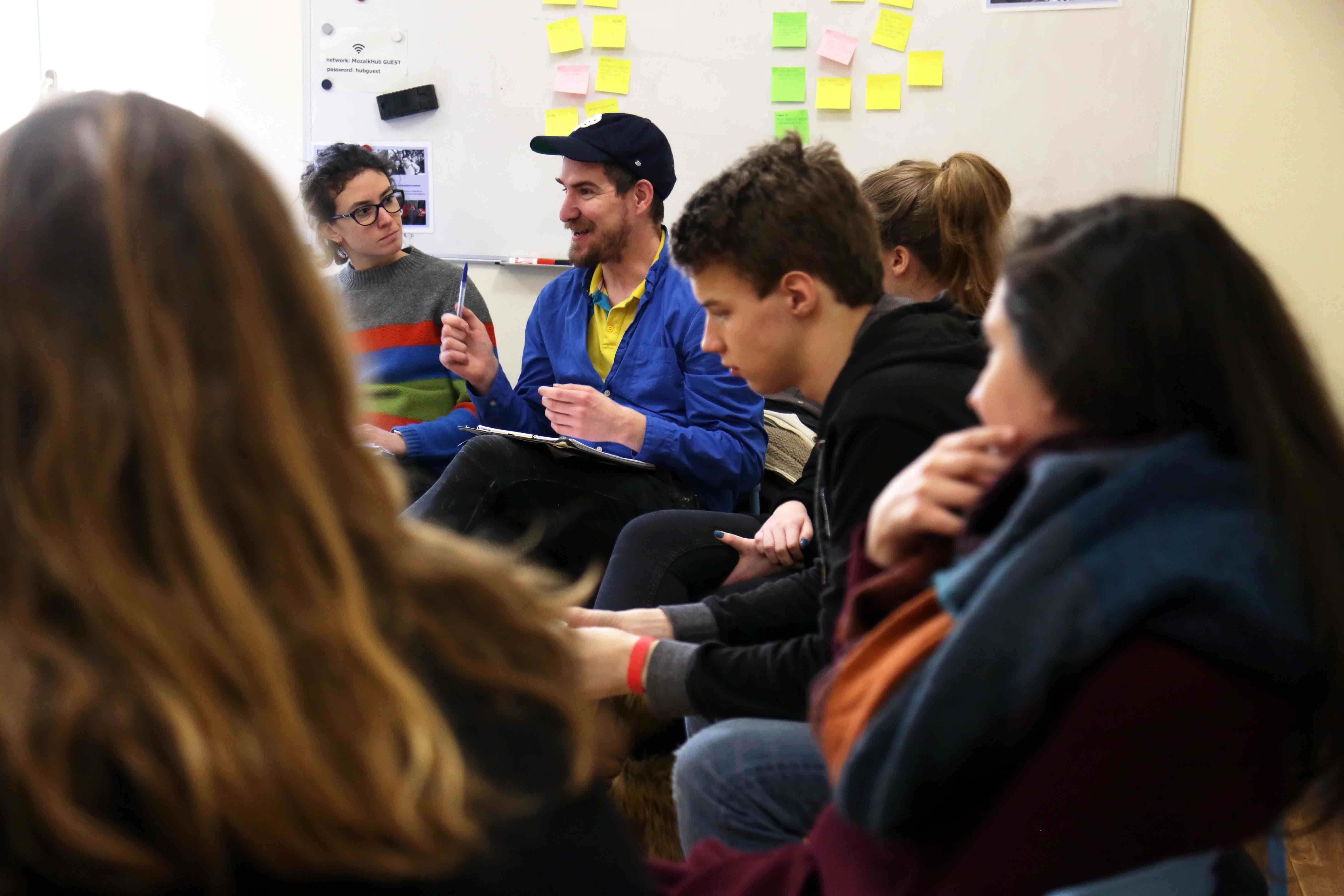
Recipes for Survival
The "Recipes for Survival” tells the story of a woman who lived through and survived the 20th century. The latter was the truly difficult task. Aunt Hédi learned to cook in the Lichtenwörth concentration camp—at least in theory—when she weighed just 28 kilograms. Alongside recipes and historical events, cooking deeply shaped her life. Her life interview and collection of recipes, published by the Centropa Alapítvány in 2013 as The Recipes for Survival, served as the basis for this unique play, staged by Gólem Theatre. After coordination with Gólem Theatre, school classes can watch the classroom version of the play and then participate in our follow-up educational session built around it.
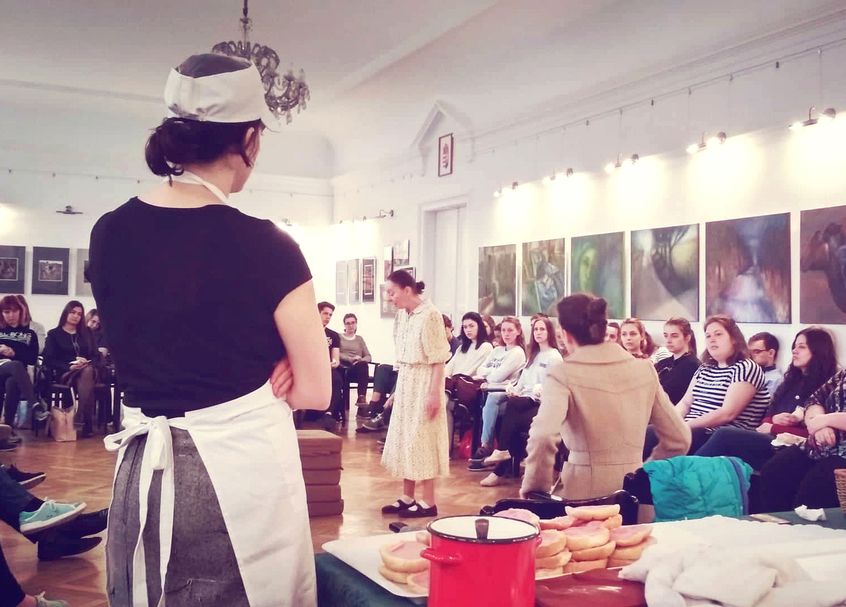
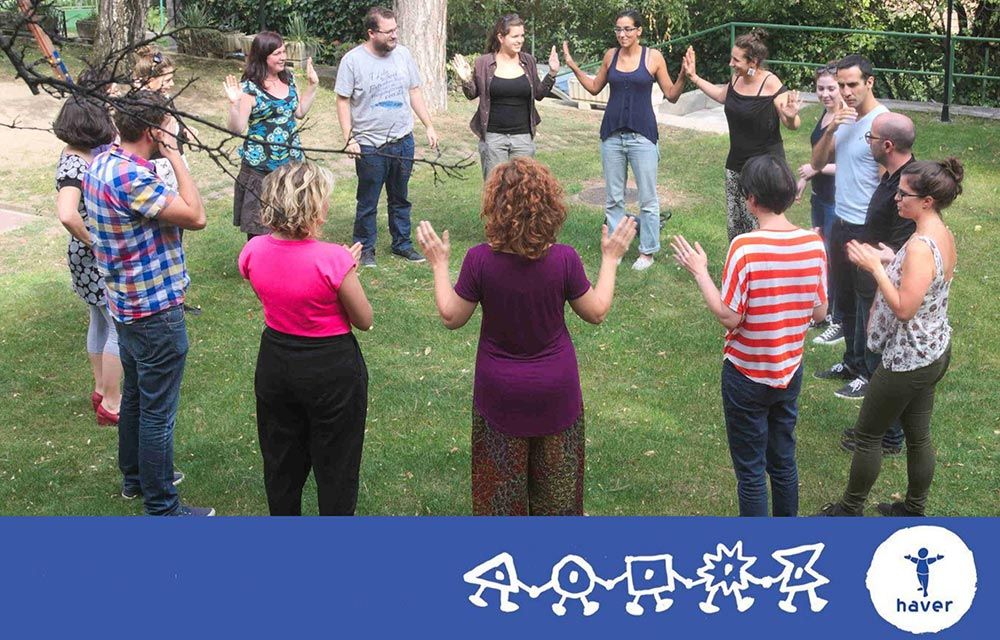
Projects
CHAD - Countering Hate Speech and Hurtful Speech against Diversity
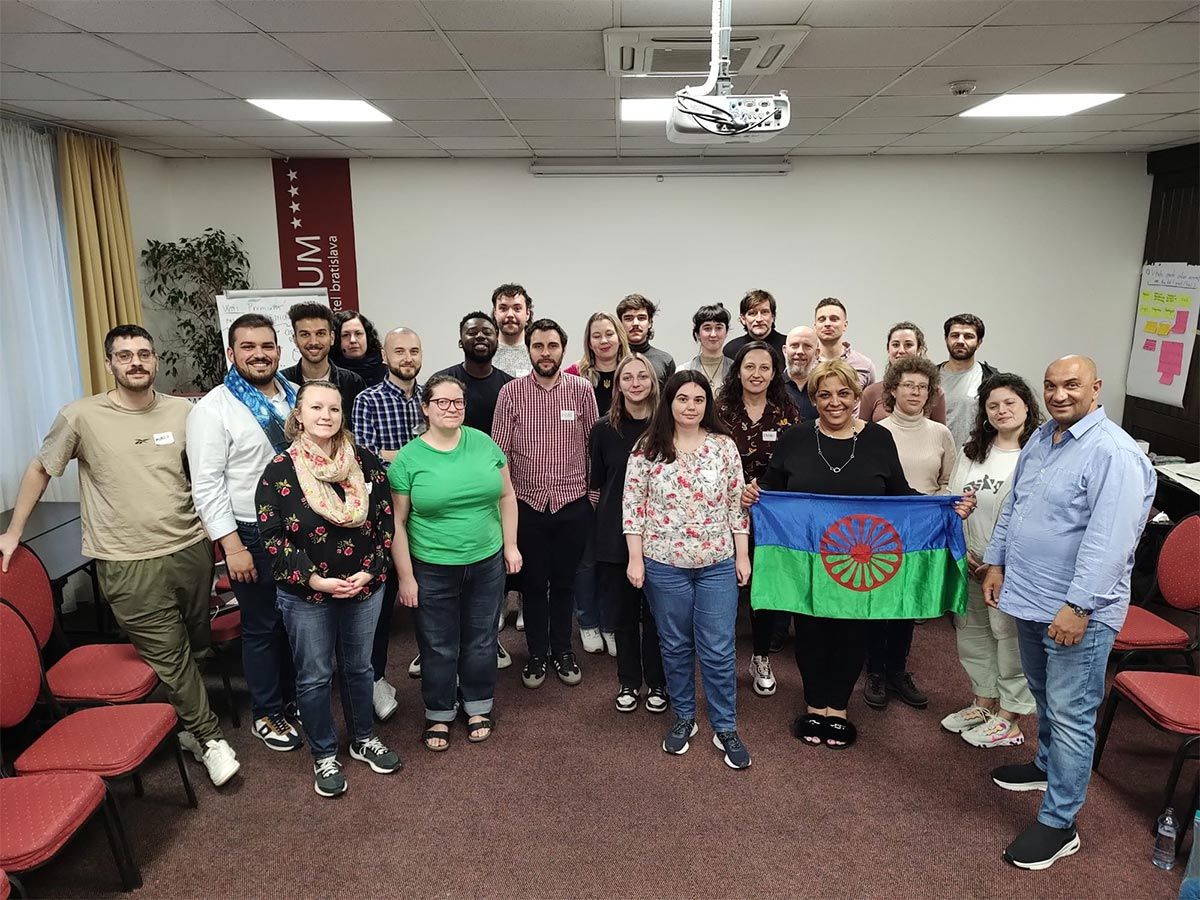
Jewishness — Clues about the Jews
In 2020, together with our volunteers, we dreamed up and developed a four-round, two-month-long online student competition, which we successfully organized in the spring and autumn of 2021. The competition was based on the themes of Jewish culture, history, and identity, as well as on aspects of 20th-century Hungarian history (competition website: https://verseny.haver.hu/). From different parts of the country and from different types of educational institutions - from private schools to vocational schools - 14 teams participated in the spring round and 20 in the autumn one. The judging panel for both rounds was made up of teachers and education professionals who have been working with Haver for a long time, along with one of our volunteers.
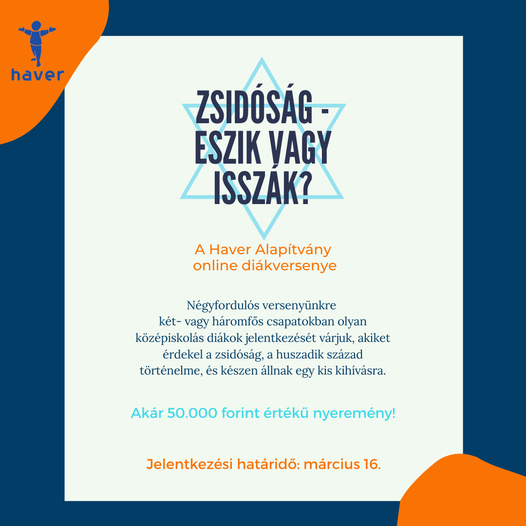
New World
The New World education package was a joint education project of the Haver Foundation, Lifeboat Unit, and the Tom Lantos Institute in 2017. The program started with a viewing of the play New World. At the end of the performance, the protagonist is standing with a sealed box in her hand, hiding the belongings of her grandmother, who had been in a death camp. The box remains closed, and the girl, who has recently learned of her Jewish heritage, is unsure where to go next. The performance was followed by a drama-based pedagogy session for high school students aged 16-18, which explored the themes presented in the play. As part of the package, our volunteers ran a follow-up session for the participating students 2-3 weeks following the performance. The project then continued with an Identities session, which began with the closed box and centered around the questions raised in the play, specifically on what it means to be Jewish today, and explored the diversity of Jewish identity. The period between the two sessions gave students the opportunity to reflect on the issues raised in the play, which they could then reflect on and discuss further with the help of Haver educators. The educational project thus helped us to work with students in several stages, using a varied methodology, contributing to the opening of intercultural dialogue, reducing prejudices, and increasing tolerance among them.
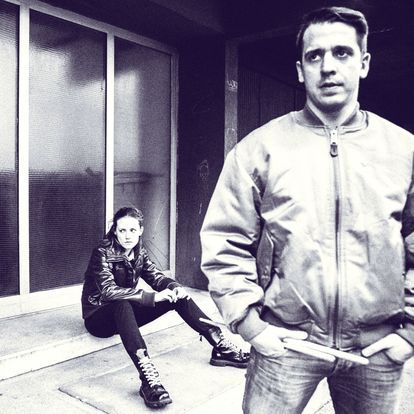
Common Ground
Joint program of Centropa Foundation, Uccu Foundation, Wesley Schools, and Haver Foundation
One of the most significant challenges of the Hungarian education system is to address the negative effects of segregation. The aim of our initiative was to create opportunities for teachers from Roma and non-Roma, Jewish and non-Jewish, in- and outside-of-capital, and underprivileged and elite educational institutions to implement educational projects that brought the youngest generations closer to each other. Our program was instrumental in catalyzing collaboration between teachers who were open to engaging their students in an interfaith and intercultural dialogue. The educators and students involved in the Common Ground program have become the builders of an open, mutually interested, supportive, and critically thinking society, designing and implementing projects that cross cultural, socio-economic, religious, and other societal fault lines, building bridges between different groups.
religious, and other societal fault lines, building bridges between different groups. The following results were achieved during the Common Ground program:
We organized three long-weekend seminars for teachers with a total of 68 practicing teachers and/or trainers from 12 municipalities and 27 schools,
25 project proposals were developed,
15 projects were implemented, with the active participation of more than 600 students and more than 40 teachers,
Four long-term school-to-school partnerships were established.
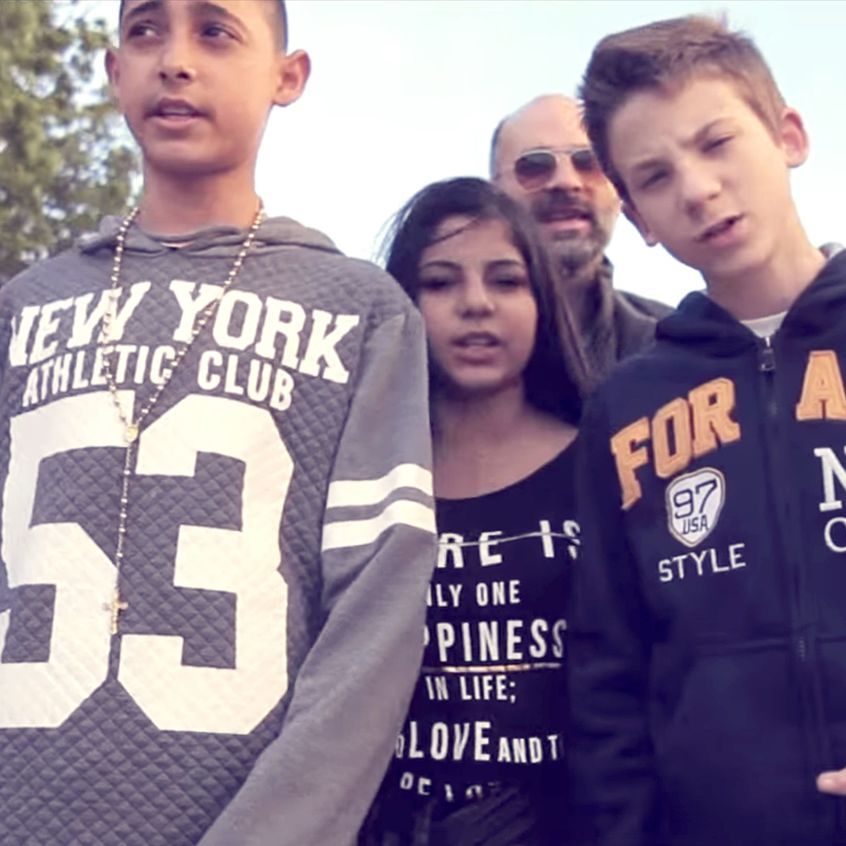
Without Taboos
A joint session for teachers by the Haver Foundation and the Uccu Foundation
The idea for the project was born out of a clear need expressed by teachers to Haver and Uccu volunteers and staff on several occasions after they had held sessions for students. Their reason was that after our sessions, it was always the teachers that had to stay with the students and continue the discussions within the classroom. The program for teacher communities and teaching staff provided an opportunity for educators to talk about the topics of our sessions without taboos and gave them attitude-shaping methodological tools and support, which can be further used in their educational approach to promote tolerance and non-judgmental thinking. The module for teachers was preceded by a Haver and an Uccu session in the respective institution during the school year.
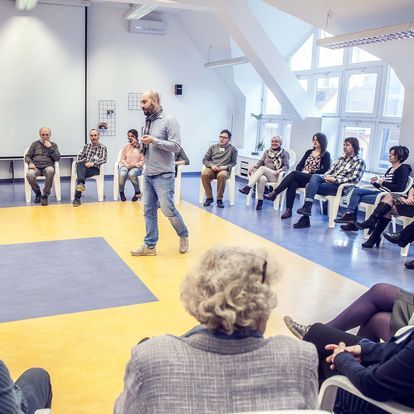
Beszélgetések - Conversations
